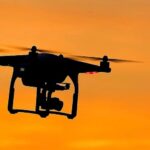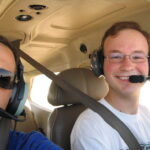
Key Takeaways: Unlocking the Skies with FAA Part 61 Certification
- FAA Part 61 sets the framework for obtaining a private pilot license, which includes ground school and flight training.
- Online private pilot ground schools offer flexibility and comprehensive training for the FAA knowledge test.
- Ground school covers essential topics like aerodynamics, navigation, weather, and FAA regulations.
- Preparing for the FAA knowledge test requires understanding the material, not just memorization.
- Costs for online ground school can vary, but they generally offer a more affordable option compared to in-person training.
Stepping into the Cockpit: Your First Move Towards FAA Part 61
Embarking on the journey to become a private pilot is thrilling. Your first step is to understand the FAA Part 61 regulations, which lay out the requirements for becoming a private pilot. This includes both ground school and flight training. The ground school is where you’ll build a solid foundation of aeronautical knowledge, essential for both passing your FAA knowledge test and becoming a competent pilot.
Understanding the Basics of FAA Part 61
FAA Part 61 is the section of the Federal Aviation Regulations (FAR) that outlines the path to becoming a private pilot. It’s crucial to get familiar with these rules because they will guide your training process. FAA Part 61 covers everything from eligibility requirements to the specific knowledge and flight proficiency you’ll need to demonstrate. It’s the roadmap to earning your wings.
- Be at least 17 years old.
- Be able to read, speak, write, and understand English.
- Hold at least a third-class medical certificate.
- Complete the required amount of flight training and ground school.
- Pass a knowledge test and a practical exam.
These are just the basics, and we’ll delve into each requirement in more detail as we move through the process.
Choosing the Right Private Pilot Ground School Course
Selecting the right ground school is like choosing the best runway for takeoff—it sets the stage for a successful flight. An online private pilot ground school can be a great choice, offering the flexibility to study at your own pace and on your schedule. But not all online courses are created equal. Look for a course that:
- Is comprehensive and covers all the topics required by the FAA.
- Offers interactive tools and resources to enhance learning.
- Provides practice tests to prepare you for the FAA knowledge test.
- Has positive reviews and a track record of student success.
- Is compatible with your learning style and budget.
Remember, the goal is not just to pass the test, but to really understand the material. This knowledge is what will keep you safe in the skies.
Flexibility and Access: Learning to Fly on Your Schedule
One of the most significant advantages of an online private pilot ground school is the ability to fit your studies around your life, not the other way around. Whether you’re balancing work, school, or personal commitments, online ground school provides the flexibility to study anytime and anywhere. This means you can progress at a pace that suits you, ensuring that you fully understand each concept before moving on.
Moreover, this flexibility allows you to revisit complex topics as often as needed, reinforcing your understanding and retention. It’s an approach that accommodates all types of learners, from those who grasp concepts quickly to those who benefit from a bit more time.
- Study at any time of day that works for you.
- Revisit lessons as often as you need.
- Progress at your own pace without feeling rushed.
Now, let’s talk about the wealth of resources available to you through online ground school.
Interactive Tools and Resources at Your Fingertips
Today’s online ground schools are equipped with a variety of interactive tools designed to make learning engaging and effective. These might include video lectures, 3D animations of flight concepts, interactive quizzes, and even virtual reality simulations. These resources can bring the world of aviation to life in a way that traditional textbooks simply can’t match.
Such tools not only help you understand the material on a deeper level but also prepare you for the practical aspects of flying. For instance, a flight simulator can give you a taste of piloting an aircraft before you ever set foot in a real cockpit.
Prepping for the FAA Knowledge Test
Passing the FAA knowledge test is a milestone in your pilot training. This exam covers a wide range of topics, from the principles of flight and navigation to weather and FAA regulations. To succeed, you need a study plan that goes beyond rote memorization. It’s about truly understanding the material, which is why a good ground school will teach you the ‘why’ behind each concept.
Study Tips and Strategies for Success
When preparing for the knowledge test, consistency is key. Regular study sessions, coupled with the use of various learning resources, can greatly enhance your understanding. Here are some strategies:
- Create a study schedule and stick to it.
- Use flashcards for key terms and concepts.
- Take regular breaks to avoid burnout.
- Join study groups or online forums for support.
- Teach someone else what you’ve learned to reinforce your knowledge.
These strategies will help you approach the test with confidence.
Mock Exams: Simulating the Real Test Experience
Mock exams are a crucial part of your preparation. They simulate the actual FAA knowledge test, giving you a sense of the types of questions you’ll encounter and the format of the exam. By taking these practice tests, you’ll identify areas where you need further study and get comfortable with the testing environment. Most importantly, they help reduce test anxiety by making you familiar with the test-taking process.
The Practical Side: Transitioning from Theory to Cockpit
While ground school is focused on theoretical knowledge, it’s designed to complement the hands-on experience you’ll gain during flight training. The two go hand-in-hand; what you learn on the ground will directly apply to what you do in the air. For example, understanding weather patterns in class will help you make informed decisions when you encounter those conditions while flying.
Integrating Ground School Lessons with Flight Training
The integration of ground school and flight training is seamless when done correctly. As you learn about aerodynamics in your online course, you’ll get to experience those principles first-hand during your flight lessons. This practical application cements the knowledge and helps build your confidence as a pilot.
It’s a good idea to start your flight training soon after beginning ground school. This way, you can apply what you’re learning in real-time. Plus, discussing your flight experiences with your ground school instructor or peers can provide valuable insights and clarification on complex topics.
- Start flight training concurrently with ground school when possible.
- Apply ground school knowledge during flight lessons for better retention.
- Discuss flight experiences to deepen understanding of ground school topics.
Now, let’s set the stage for your first time in the pilot’s seat.
What to Expect During Your First Flight
Your first flight lesson is an unforgettable experience. You’ll get to put your ground school knowledge into practice and take control of an aircraft for the first time. Expect a mix of excitement and nerves, which is entirely normal. Your instructor will be there to guide you every step of the way, from pre-flight checks to the exhilaration of takeoff and the basics of controlling the aircraft.
Remember, this is a learning experience, so don’t worry about perfection. It’s about getting a feel for the aircraft and the sensation of flying. It’s also an opportunity to ask questions and start building your piloting skills in a real-world environment.
Costs and Budgeting for Ground School
Let’s talk numbers. Online private pilot ground school can be significantly more affordable than in-person options. While prices vary, you can expect to pay anywhere from a couple hundred to a few thousand dollars for a comprehensive online course. This typically includes all the study materials, practice exams, and support you’ll need.
Financial Planning for Your Aviation Education
Planning your finances for pilot training is essential. You’ll need to budget for both ground school and flight training. Scholarships, financial aid, and even payment plans may be available to help manage the costs. It’s worth researching and reaching out to flight schools or aviation organizations for funding opportunities.
Remember, investing in a quality education will pay dividends in your safety and competence as a pilot. It’s not just about passing a test; it’s about acquiring the skills and knowledge that will serve you for a lifetime of flying.
As we wrap up this section, let’s address some frequently asked questions about FAA Part 61 and the journey to becoming a private pilot.
Financial Planning for Your Aviation Education
When planning for your aviation education, it’s crucial to create a budget that includes all potential expenses. Online ground school can range from a few hundred to a couple of thousand dollars, depending on the program and its resources. But remember, the cost of ground school is just one piece of the puzzle. You’ll also need to budget for flight training, which can be significantly more expensive, depending on the number of hours you fly and the type of aircraft you train in. It’s a good idea to set aside additional funds for unexpected expenses, such as extra flight hours or additional study materials.
Navigating Scholarships and Other Funding Resources
Aviation education can be costly, but there are many scholarships and funding resources available to help mitigate these costs. Aviation organizations, non-profits, and even some flight schools offer scholarships specifically for aspiring pilots. Additionally, some online ground schools may offer payment plans or discounts to make their courses more accessible. Don’t hesitate to reach out to local aviation clubs or search online databases for scholarship opportunities. Every bit of financial support can help ease the burden of training costs.
FAQ: Your Flight Plan to FAA Part 61 Certification
How long does it typically take to complete online ground school?
Completion time for online ground school varies based on the individual. Most programs are self-paced, which means you can finish as quickly or as slowly as your schedule allows. On average, students may take anywhere from a few weeks to several months to complete the coursework. The key is to ensure you understand the material thoroughly, not just rush through it. After all, this knowledge forms the foundation of your skills as a pilot.
Can I start flight training before finishing ground school?
Absolutely! In fact, starting your flight training while attending ground school can be beneficial. It allows you to apply what you’re learning in a practical setting, which can enhance your understanding of the material. Some concepts might seem abstract in the classroom but will make more sense once you see them in action in the cockpit.
What are the benefits of choosing an FAA Part 61 program over others?
FAA Part 61 programs are known for their flexibility, making them a great choice for students who need to balance training with other commitments. They allow you to progress at your own pace and tailor your training to your specific learning style. Additionally, Part 61 programs often have a more relaxed training atmosphere and can be customized to meet your individual needs.
Are there any prerequisites or skills I should have before enrolling?
Before enrolling in an online private pilot ground school, you should be able to read, speak, write, and understand English fluently. Additionally, having basic computer skills will help you navigate online coursework. While a background in aviation or aeronautics can be beneficial, it’s not required. Most ground schools are designed to take you from zero to knowledgeable, so a passion for learning and an interest in flying are the most important prerequisites.






Leave a Reply